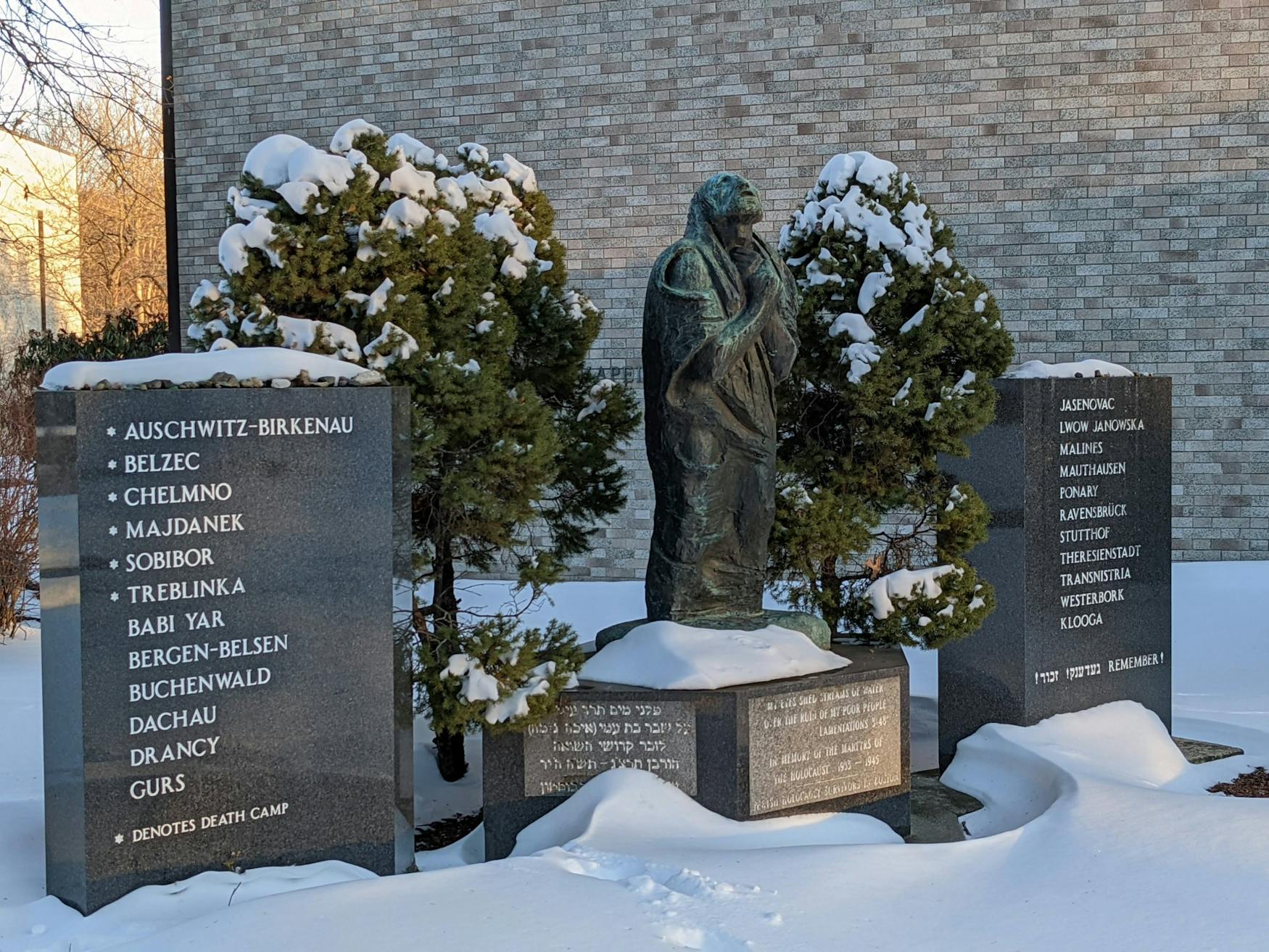Commemorating International Holocaust Remembrance Day
The University’s Hillel Rabbi emailed the Brandeis Community about the importance of remembering and honoring victims of the Holocaust.
Jan. 27 was International Holocaust Remembrance Day, the day that the United Nations designated for remembrance of the genocide of six million Jewish people and millions of other victims. This day was picked because it marks the liberation of Auschwitz-Birkenau, “one of the most infamous camps of the Holocaust,” states the United States Holocaust Memorial Museum’s website. The museum's website writes that over 1.1 million people were killed at Auschwitz, one million of which were Jews.
On Wed Jan. 26, Rabbi Seth Winberg — the University’s executive director of Brandeis Hillel and Director of Spiritual Life and Senior Chaplain — sent the Brandeis community an email about commemorating the day. “There is no standard observance for Holocaust remembrance, especially here in America,” explained Winberg, but a customary commemoration is to listen to survivors of the Holocaust. Winberg provided two links to resources where individuals can read biographies of survivors and essays by survivors.
This year, the University did not host any events or speakers to commemorate the anniversary of the liberation of Auschwitz. The University’s official Instagram account posted a photo of Nathan Rapaport’s bronze sculpture of “Job” which stands at Brandeis’ Holocaust memorial outside the Berlin Chapel on campus.
In previous years, the University and clubs have held commemoration events in various forms. In 2021, the Brandeis alumni website announced the efforts of the Brandeis National Committee with their "Honoring our History" campaign, a campaign that digitized documents at the University in honor of the University’s founding principles of social justice. The campaign included “preserving the history of the anti-Nazi resistance,” stated the Brandeis Alumni article. The collections in commemoration of the Holocaust included personal papers of Helmut Hirsch, the Jewish Resistence Collection, and the Spitzer Family Papers.
In 2020, Brandeis’ Center for German and European Studies and the Goethe Institute showed a nine-and-a-half hour documentary by Claude Lanzmann called “Shoah.” The University also hosted Holocaust survivor, Inge Auerbacher, to share her experience of survival of the Theresienstadt concentration camp.
Winberg emphasized that commemoration of the historical genocide of European Jews during the Holocaust should also be accompanied by the acknowledgement that “Antisemitism is tragically still not a spent force in the world.” The prevelant, and rising, rates of antisemitism across the country and internationally calls for people to “stand up for the defenseless and for what is right,” wrote Winberg.
Winberg ended his email urging the Brandeis community to take a few moments on Jan. 27 to remember the tragedies of the Holocaust and “honor the memories of the millions lost.”



Please note All comments are eligible for publication in The Justice.